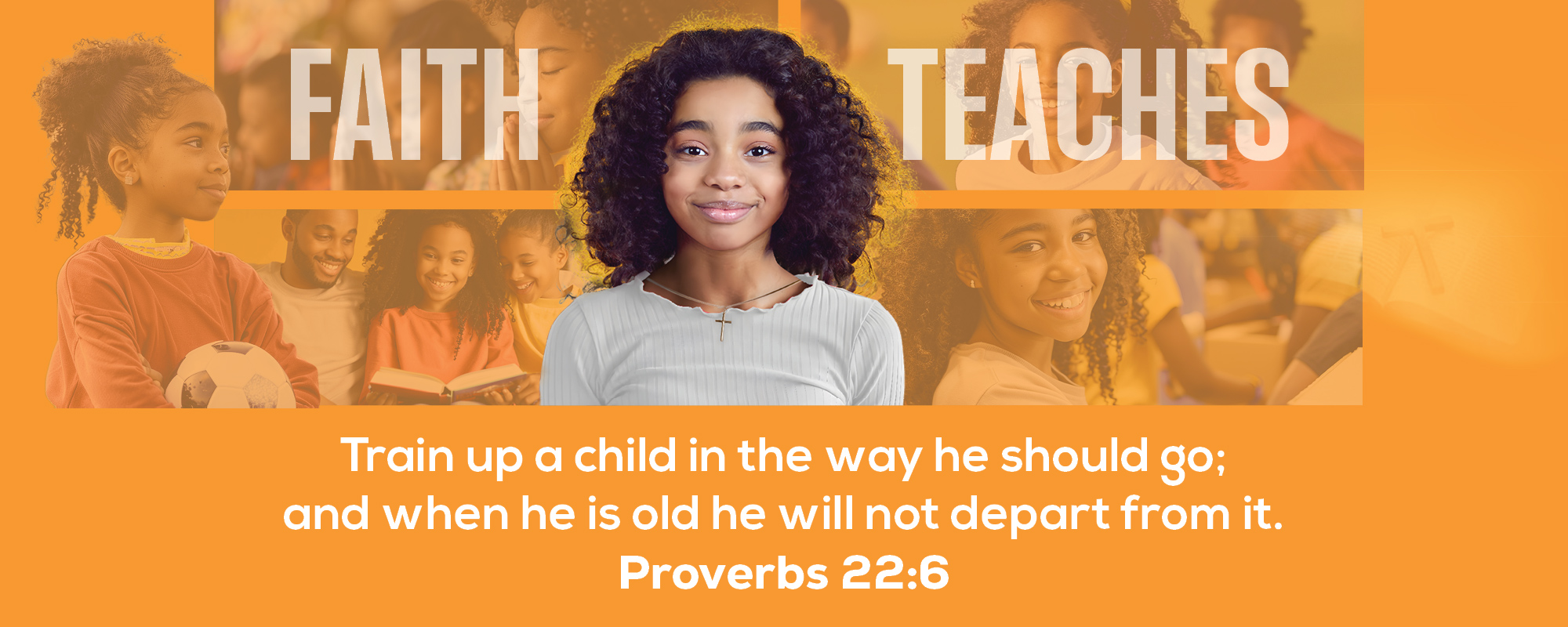Learning and Leading with AI: Teaching, Technology, and Courage to Grow
84f03352-88d2-473e-b077-f03339396106.jpg?sfvrsn=844eb8d7_1)
Artificial intelligence has entered our classrooms and staff meetings, sometimes in big ways, sometimes in subtle ones. It’s changing how we write, research, grade, plan, and even how we imagine what teaching could look like in the future. For Christian educators, this new reality brings both opportunity and challenge. The question isn’t whether AI will be part of education—it already is. The deeper question is, how will we, as Christian teachers and school leaders, engage it faithfully?
This is not just about mastering a new tool. It’s about remembering what it means to be human, to teach in ways that honor God, and to use technology in ways that amplify—not diminish—the high calling of living out our faith through our work as educators.
Teaching and Learning, and Committing to Playful Practice
Teaching is a journey of becoming, not arriving. Whether you are new to the profession or a seasoned educator, your development as a more faithful educator is a process, one shaped by reflection, practice, and imagination. As Christian teachers, this journey takes on a distinctive purpose: learning to more faithfully follow Jesus through our work, integrating our discipleship into the classroom. One powerful way to approach this journey is through what I call playful practice, a method of learning and experimenting that nurtures creativity, resourcefulness, and flexibility.
When we speak of creativity, many educators hesitate, thinking it requires being “artistic.” But creativity is broader than painting or music. It is the capacity to be generative, adaptive, and resourceful—qualities we can cultivate through repeated, intentional practice. In teaching, playful practice allows us to explore new ideas, refine strategies, and even experiment with technologies like artificial intelligence without fear of failure. Just as practicing a musical instrument or athletic skill develops permanent habits and capabilities, playful practice in teaching cultivates habits of thoughtful, imaginative, and ethical decision-making. A willingness to experiment and explore, even with regard to your teaching, is the heart of playful practice, so take this as your invitation to play!
Approaching AI through the lens of playful practice and God-glorifying, human-centered discernment also involves acknowledging the limitations of technology. Machines are powerful but often less magical in reality than in our imagination. A Roomba may promise effortless cleaning, yet in practice, it struggles with corners, stairs, and furniture layouts. Similarly, AI tools might seem impressive at first glance, but their outputs are only as good as our guidance, oversight, and ethical judgment. Our task as educators is to identify which tasks humans (both teachers and students alike!) should be performing. This is not to say we can’t be supported by tools, of course. If you are going to dig a hole, I suspect you’ll use a shovel—or perhaps even a backhoe for a really big hole—rather than your bare hands. Humans use tools, and sometimes very powerful tools, to help with the work we are doing. But discerning which tools to use, and when to use them, is a key part of ensuring that the human work remains meaningful and formative.
Remembering Who We Are as Teachers
As I see it, the heart of Christian teaching is a conviction that education is about more than efficiency, productivity, or even content mastery. A real, true education is really about shaping persons made in the image of God, nurturing wisdom, cultivating character, and guiding students toward truth.
AI has the power to automate certain tasks that weigh us down—lesson planning, grading drafts, and organizing resources. But if we allow it to take over the distinctly human parts of teaching—relationship, mentorship, imagination, prayerful discernment—we risk hollowing out the very work we were called to do.
Our role as Christian educators is not to compete with machines, but to lean more fully into the really human work of teaching: listening to our students, encouraging and challenging them, and bearing witness to Christ’s love in the classroom. This is the good, God-delighting work we get to do!
The Goodness of Work and the Danger of Shortcuts
Teaching is hard work, and that’s not a flaw in the system—it’s part of the goodness of the vocation. Hard work forms us, shapes our students, and creates the deep satisfaction that comes from effort and growth. Just because the work is hard does not diminish its goodness one iota!
However, we might be tempted to avoid hard work. I suspect our students are likewise subject to this temptation. And the truth is, AI can certainly tempt us with shortcuts, ways we might avoid the hard work that doesn’t always seem so “good.” Why labor over a lesson plan when a chatbot can generate one in thirty seconds? Why wrestle with engaging a tricky passage when an algorithm can spit out a neat summary? But taking the shortcut often means losing the joy, creativity, and growth that come through the struggle.
As Christian educators, we are called to hold onto the dignity of the work, even as we wisely use the tools available to us. AI should serve as an assistant, not a replacement. It can clear away the busywork, but it must not rob us—or our students—of the transformative power of learning through effort.
Playful Practice and the Ongoing Journey
Teaching with AI is not about “arriving” at a perfect strategy once and for all. It’s about becoming the kinds of educators who are curious, discerning, and willing to experiment.
This requires a spirit of playful practice. Try a new AI tool with your students and see what happens. Use it for brainstorming, for generating questions, and for exploring multiple perspectives. Then reflect—what worked? What didn’t? How did it help your students grow?
We don’t have to be experts right away. What matters is a willingness to learn, to adapt, and to let our classrooms be places where both teachers and students grow in wisdom together.
A Call to Courage and Imagination
We are stepping into a new era of education, one where AI will only grow more powerful and more present. Christian educators cannot afford to ignore it, nor can we simply adopt it uncritically. What we need is courage and imagination.
I think we need courage to resist the pressures that would reduce education to efficiency alone. It takes a kind of counter-cultural courage to keep our focus on the human, the relational, the spiritual. Likewise, I think we have an opportunity to develop our collective imagination to see how AI can be used in service of God’s kingdom: freeing teachers to spend more time with students, helping learners explore complex questions, and discipling students as we seek to cultivate wisdom, virtue, and Christian character.
So, here’s the challenge, friends: let’s commit to stepping into this new frontier with open eyes and faithful hearts. You can use AI, but don’t be used by it. Experiment, reflect, and keep the good, human work at the center. Show your students that in a world of machines, it is still good to be human!
About the Author
35b0c2be-2b0e-485b-b688-a4f328c87b14.jpg?sfvrsn=ce30e70b_1)

More Blog Posts
-
Dr. Justina Jenkins | March 3, 2026
-
Dr. Lynn E. Swaner, Dr. Rian Djita, and Dr. Adam Wilson | February 24, 2026
-
Dr. Ray Epperson | February 17, 2026
-
Edward Bunn, Ed.D. | February 10, 2026
More ACSI Blog Posts
-
Dr. Justina Jenkins | March 3, 2026
-
Dr. Lynn E. Swaner, Dr. Rian Djita, and Dr. Adam Wilson | February 24, 2026
-
Dr. Ray Epperson | February 17, 2026

Subscribe to ACSI Blog & Podcasts






.jpg?sfvrsn=d050331d_1)
.jpg?sfvrsn=adfd7a64_1)
.jpg?sfvrsn=cb0a265b_1)
.jpg?sfvrsn=9e3b40a9_1)